Meaningful Work
Free Your Identity From Your Job
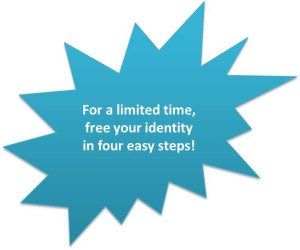 It is easy to let your job become your identity. Especially if you have a title or function that is considered high-status, or you work for a well-known organization. This manifests as “I’m important because I’m Senior Director of Finance!” or “I’m important because I’m a surgeon!” or “I’m important because my company is a nationally broadcast news station!”
It is easy to let your job become your identity. Especially if you have a title or function that is considered high-status, or you work for a well-known organization. This manifests as “I’m important because I’m Senior Director of Finance!” or “I’m important because I’m a surgeon!” or “I’m important because my company is a nationally broadcast news station!”
American culture and language may be partly to blame for over-identification with work. For example, in French, a guy doesn’t say “I am hungry” because he isn’t the embodiment of hunger. Instead, he says, “J’ai faim”, which more literally translates to “I have hunger.” Wouldn’t it be great if instead of “I am a mechanical engineer”, people thought of their job in terms of “I do mechanical engineering work for a living?”
There would be less annoying egos to deal with and more focus on producing the outcomes that job functions are intended to produce. Haven’t we all been to a party where people ask each other what they do for work and someone puffs out his chest and says “I’m the head of the ______ corporation,” and we think to ourselves, “you might be the head of a company but you’re an ass at this party.”
If you’re taking your identity from work, here are four steps to break free:
Step 1) Stop, just stop using your work email address for your personal correspondence. Using “me@mycompany” for personal use reinforces to you and everyone you email that you are inseparable from your job. I will reblog this point until you stop.
Step 2) Acknowledge to yourself that you are not your job. You are a person who does work in exchange for a paycheck. No matter what title you have, whether you work for yourself or someone else, regardless of your salary and how much or little your role is favored by society; you are still not your job.
When interviewing people about quitting their jobs, many men told me they took their identity from their work. Women often told me they think of themselves first as a mother or wife and then in terms of their work. I dislike all of this because it is taking on identities from factors outside of yourself. If you are your job, what are you when the job goes away? If your reason for existing is your child or spouse, what happens when they turn on you or disappoint you, or you end up living vicariously through them?
You can still be an employee/parent/spouse and be happy and proud of being those things. I hope you are! That is different from getting your sense of self from them.
Step 3) Start defining yourself by your own qualities and attributes. Then repeat the words to yourself, silently or aloud, every single day, until you believe it. For example, “I am a kind, generous person” or “I am strong and resilient”. Your job can’t take your innate characteristics way from you.
Step 4) Have a life outside of work. Spend time with people other than your coworkers. Have a hobby. Participate in a club or organized group. Yes, you spend many of your waking hours at work. Maybe too many. It is said you can tell a person’s priorities by how they spend their time and money. Make your life bigger than your job by caring and participating in activities that have nothing to do with work.
If you need to spend more hours working each week than on any other single activity, you can make your reason for working have more meaning. You’re supporting a family with your salary. You’re learning a skill that will allow you to transition to a better job. You’re saving money so that you will have more choices about work in the future.
And then? Do step number one right now and the repeat steps two through four until you identify yourself by your unique qualities or you die, whichever comes first. C’est tout.
I want to quit my job…two years from now
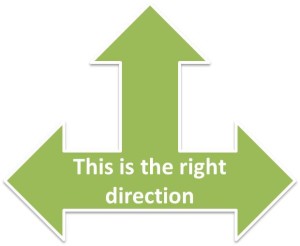 I’ve had a lot of conversations with people who tell me they want to quit their jobs, but not right now. They want to quit in two years. The most common reason is that people want to stop doing their current work and do something else…but they don’t know what that is. For some reason they think that in two years they will have figured that out.
I’ve had a lot of conversations with people who tell me they want to quit their jobs, but not right now. They want to quit in two years. The most common reason is that people want to stop doing their current work and do something else…but they don’t know what that is. For some reason they think that in two years they will have figured that out.
However, when you’re working a ton of hours in a stressful position, you don’t have much mental space or energy to determine what your next best job is. Plus, your free time is spent recovering or distracting yourself from your unhappy situation.
I feel your pain.
It wasn’t until I made up my mind that I was going to quit my job that I began to have ideas about what my future might look like. There was a definitive moment, a changing of my mindset, when I set my intention to quit. I turned my focus away from trying to make my current job situation better and focused on creating a better life. Like magic, I started getting inspired and followed my interests as far as they would go.
Here are a few examples of the actions I took and what they led to:
- After eight years without any creative writing, I started filling notebooks again. The ideas for stories, poems and lyrics popped into my head without even trying. I decided that after I quit my job I would spend a month at Naropa University’s Summer Writing Program. Once there, I wrote the outline for my self-help book for people who want to quit their jobs. I started this blog. I also kept writing creatively, joined writing groups, and volunteered with a literary magazine.
- I began researching and visiting animal sanctuaries. I documented their best practices and what they needed to improve. I have no idea if this will lead to any paid work in my future, but it was meaningful to me. The current outcome is that I have three favorite animal non-profits: Best Friends Animal Society, Chimpanzee Sanctuary Northwest and The Wild Animal Sanctuary.
- I realized that my love of research, analysis, report-writing and justice could lead to a career in private investigation. I got certified, built a marketing plan and decided this would be my next job. In case you haven’t been following my blog – I did not become a P.I. But planning to be a P.I. gave me the courage to quit my job and continue pursuing my interests until I ultimately began my consulting business.
Which leads me to this point: you don’t have to figure out your next job right now. All you have to do is follow your interests. Two years from now, your ideal job may be completely different – and better – than anything you can dream of now.
Happily, I’m not a data point of one. Many people who I spoke with followed a winding path to a satisfying career. If you need more convincing, read Martha Beck’s Finding Your Way in a Wild New World.
If you’re convinced but are thinking “what do I do now, I don’t even know what I’m interested in”, just experiment with one small, easy thing that you will enjoy doing. Make something with your hands. Revisit an old hobby. Do something you liked doing as a kid. Talk to a friend in a career that you may be interested in. Take a class or an evening workshop in a subject you are curious about. Read.
If you’re on the right track, more and more opportunities will open up to you, just as starting to write poetry again led to a month of writing classes and my book-in-progress.
When you’re not on the right track, you’ll lose interest or life will throw signs at you that it is time to change direction. For example, as I neared the date when I planned to quit my job, I began to doubt that a formal career in investigation was the right choice even though I enjoyed the process leading up to it. At the same time, a former coworker and I came up with a business idea and created an LLC in a blink. Several months later I realized our company wasn’t going to generate a salary and I moved onto my backup plan of consulting, which turned out to be a perfect career for me.
I didn’t cling to my initial idea out of stubbornness or misplaced determination. I was open to each new opportunity and was willing to move forward or change my plans as I went along. I like the metaphor of walking on a path with a lantern that only illuminates the step you’re at and where to place your feet next.
For example, if you are interested in making elaborate, one-of-a kind cakes, you don’t have to buy a bakery or launch a catering business. Have a friend or two commission desserts from you and if you enjoy it, do more. You might find that you only want to bake cakes for your loved one’s birthdays because it is a creative outlet and you feed off of their gratitude. Maybe you’ll realize you don’t want to make cakes for strangers, you don’t want to bake at all in the summer, and you really don’t want to produce a customer’s requested design if it isn’t a style you’re interested in.
When you pay attention, the universe will give you nudges in the right direction. What matters is that you are taking action. You are signaling that you are open to discovering a new path, one step at a time. If it leads you to another step forward– great! If you dislike it, or the choice generates negative results, then pursue your other interests.
If you’re one of those people who want to quit their jobs in two years, be clear about your intention. Then take one small action and you’re on your way.
Some Career Transitions Take Longer Than Others
 Some career transitions take longer than others. Leaving a project management role at one company for another may be a matter of updating your LinkedIn profile, and making connections with recruiters, and performing well in interviews.
Some career transitions take longer than others. Leaving a project management role at one company for another may be a matter of updating your LinkedIn profile, and making connections with recruiters, and performing well in interviews.
Wholesale career changes might take longer. Not much longer if you’ve got transferable skills, are allied with an influential person at the place you want to work, launch your own enterprise or are just plain lucky.
It takes longer if your new career path requires going back to school for training or degrees, or means taking an entry-level job to gain experience in an unfamiliar field. But time is relative and two or three years of learning the ropes at a low-paying, low-stress, starter position might be the perfect transition between a job you hated and a new career that you’ll love for the rest of your working years.
I worked with a guy who transitioned from a six-figure sales job into a lower paid marketing role to build a career with more opportunities. He is savvy and worked hard, and six years later I bet he’s earning more than he did in sales and enjoying his life much better. Another friend moved from a lucrative engineering role to finance because it gives him the experience and credibility he needs for his next career move.
If you dream of a different career but are afraid that it will take too long or cost too much to get there, remember that you can start building the skills you need right now, before you quit. Take a night class. Volunteer in a related field. Go to events focused on your career topic and network. Ask people already in the roles you want to give you thirty minutes for an informational interview, where you ask them what skills and experience are needed to get started, what they actually do each day, and whether they like it or not.
I’ve done all of these things with great results. A series of informational interviews was how I learned early in my career that I wanted to focus on business, marketing and writing, and not on graphic design. I earned my MBA in five years of evening classes, and went to work each morning applying the knowledge I had just learned. I went to conferences and exchanged dozens of business cards with recruiters, executives and friendly people who I connected with. I’m still in touch with many of them.
If you’re still not convinced, read Jennifer Lesher’s blog post from May 20th, where she describes the transition from tech to airplanes. Can you feel her joy? Imagine yourself feeling the same way.
Is Your Job Making You a Jerk?
Is Your Job Making You a Jerk? Here are a several signs of jerk behavior:
- Are you impatient with your coworkers and staff?
- Do you blurt out statements instead of thinking about how to phrase your communication in a way that will allow others to listen without getting defensive or hurt?
- Do you put a lot of effort into presenting yourself as if you are happier and calmer than you are?
- Do you frequently vent your frustration or complain to others?
If so, either you were already a jerk, or your job is not bringing out your best behavior. If you think that deep down you’re a nice person, or you used to be, there’s hope.
We’ve all heard the phrase “a toxic work environment.” Except instead of your bloodstream being poisoned by toxic chemicals in a non-OSHA approved factory, your soul is poisoned by absorbing too much negativity in the workplace. It might stem from a manager who rules by fear, or takes out his own fears on you. It might come from a team of colleagues who fill meeting rooms with hostility. Or there are office bullies and back-stabbers to contend with.
It might be that your official duties make no sense, you’re required to work so many hours that you’re constantly exhausted, or you’ve seen enough coworkers fired that you’re just waiting until the axe falls on you.
If you are surrounded by negativity you probably aren’t the friendly person everyone wants to eat lunch with in the cafeteria. It is draining to put effort into positive behavior when you are miserable at work. Over time, you lose your capacity to control it. You may be low on the scale that spans from “occasionally rude” to “a monster from hell”, but why be on the jerk scale at all if you can help it?
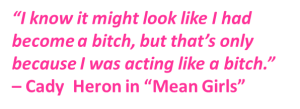 On the other hand, if you are non-stop cheerful despite working in a terrible environment, that is…not normal. You’ve either attained enlightenment or are detached from reality. Better to acknowledge the truth and then take action to change it.
On the other hand, if you are non-stop cheerful despite working in a terrible environment, that is…not normal. You’ve either attained enlightenment or are detached from reality. Better to acknowledge the truth and then take action to change it.
So what is the solution?
Quit.
Think about it: if you actually worked in a factory full of toxic chemicals, wouldn’t the best way to avoid poisoning your body be to stop exposing yourself to the toxins?
If you aren’t ready or willing to quit immediately, you can do a few things to protect yourself in the meantime. First, make a plan to quit! Save money, update your resume, network – you know the basics. Having a plan reminds yourself that you are empowered to make choices for your own life and that you are on a path leading to a better job.
Next, go ahead and vent – but only to one or two trusted coworkers who see the work environment the same way you do. Being able to tell someone about the crazy business decision that your boss just made will make you feel better, but only if your coworker gets why it is crazy and validates your frustration. Having a friend in the workplace who you can speak openly to without repercussions helps burn off that negative energy. It can also keep you from complaining to the wrong people – the people who are not on your side.
Finally, consider Dale Carnegie’s 30 principles from his book “How to Win Friends and Influence People”. All of the principles are useful to become a friendlier person and a more effective worker. My personal favorite is number 12: “If you are wrong, admit it quickly and emphatically.” When your jerk behavior gets the best of you, immediately apologize to the person you offended. Apologies show that you’re human, humble, and trying your best.
If your job is making you a jerk, know that it doesn’t have to be that way. You deserve a better workplace and a better attitude. Take steps to detox the negativity from your system. And be nice.
The Entrepreneur Tax
 I finally filed my income taxes a few days ago. Normally I like to do my own taxes. I know; it’s a quirk. I’m process-driven and I like going step by step, adding up the income, subtracting the deductibles.
I finally filed my income taxes a few days ago. Normally I like to do my own taxes. I know; it’s a quirk. I’m process-driven and I like going step by step, adding up the income, subtracting the deductibles.
This year, doing my taxes sucked.
I had my company’s taxes completed by a professional, but this is the first year that I did my income taxes as a business owner. It was also the first year that I had to pay a big tax bill. I thought that I had managed my books throughout the year pretty well, with help from an accountant. I wanted to be sure I followed all the IRS rules, and am not interested in trying to avoid paying my fair share of taxes. I have no idea why, but for some reason I thought that owning a business would make my taxes much lower than when I was a W-2 employee.
Surprise! In a bad way!
When my taxes were done and filed, I came to terms with the fact that my net earnings were less as an entrepreneur than they had been as an employee. I realized how much having a 401(K) reduced my taxes in the past. Contributing to an IRA on my own did not help nearly as much this year.
By the time I pay for licenses, insurance, and healthcare among other things that were covered when I was a W-2 employee, my expenses are higher now. And when I “get to” pay expenses from my business account, it is coming from the income I earned, which leaves less for my salary.
I learned a few things that will help me be smarter about managing my tax liabilities this year, so that’s good. And I’m still glad I’m an entrepreneur and not an employee, so that’s also good! And of course, it’s up to me to find clients, set my rates and work billable hours.
I should also mention that while my net income was lower, I also worked about half as many hours as I had in my last full-time employee role. Some of that was downtime between clients. But most of it was because I was no longer working 12 or more hours day after day. If I run the numbers this way…I actually came out ahead. I came out ahead financially, mentally, emotionally and physically. The entrepreneur tax sounds much more appealing now, doesn’t it?
Did Your Manager Go to the Dark Side?
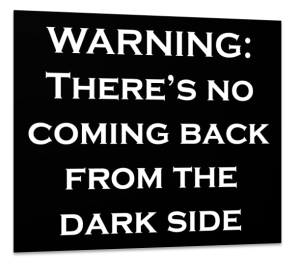 As I researched the topic of people quitting their jobs, I heard a lot of stories about evil managers. No surprise, right? Unfortunate employees across all industries had tales of harassment, corruption, and behavior that would be shocking if it wasn’t so prevalent.
As I researched the topic of people quitting their jobs, I heard a lot of stories about evil managers. No surprise, right? Unfortunate employees across all industries had tales of harassment, corruption, and behavior that would be shocking if it wasn’t so prevalent.
The saddest stories I heard were the ones about bosses that didn’t used to be evil. Their ex-employees told me that some of them used to be great. They were effective leaders who clearly communicated expectations and treated their staff with respect. There was mutual trust and positive manager/employee interactions.
What made these bosses go to the dark side?
- The managers’ workloads skyrocketed and they did not have the support of their own bosses.
- They were promoted to higher levels and as their egos inflated, their people skills declined.
If you have a boss who turned evil and you’re clinging to the shreds of the person he or she used to be, your odds aren’t good. I only heard one story about a bad boss who became more supportive of her staff as her home life improved. But she was one who started out evil. I didn’t find any stories of people making it back from the dark side once they crossed over.
It can be cathartic to share stories of nasty bosses, but I’d rather learn something from these scenarios. First, if you’re reporting to a bad boss, you know it probably won’t get better. Now is a good time to start planning your next career move.
Second, there’s an opportunity for self-reflection and choice. When I worked in a difficult environment and was constantly stressed, scrambling to meet last-minute deadlines, and exhausted, I didn’t have my full set of interior resources to draw upon. It took much more effort and energy to put the Dale Carnegie and Emotional Intelligence skills I’d learned to use. I had less time to help others and less patience with mistakes. I didn’t like that my behavior and attitude could be negatively impacted by my job. When I changed careers, one of my priorities was to work in environments that enabled the best version of me to show up more often than not.
Leave the evil bosses behind.
And when you grow your own career, remember the warning signs. Don’t go to the dark side.
She Quit Her Teaching Job to Become a Coach, Author and…Teacher
 Many people take a winding path when they quit their jobs to do something more meaningful. I’ve written about my own journey that took a number of unexpected turns before I began my consulting business.
Many people take a winding path when they quit their jobs to do something more meaningful. I’ve written about my own journey that took a number of unexpected turns before I began my consulting business.
It might run in the family! My sister, Kristen Sutich, left her long-time job as a kindergarten teacher in the summer of 2013. She became a certified coach, starting a business that focuses on clients with grief issues and or parents of young school children.
Those areas might overlap – I know plenty of kids who give their parents grief!
While Kristen launched her coaching business, she wrote a book of tips for parents of children who are starting kindergarten. She knew that a published book would be useful in many ways: the hard copies are something tangible she can give to clients, authoring the book demonstrates her credibility as a subject-matter-expert, and it is one more way that she can reach prospective customers.
Then, just before publishing the book she decided to start teaching at a preschool near her. She was drawn to their creative approach, started as a substitute, and quickly became a staff member.
If you had asked her in July of 2013 if she thought she would be teaching preschool a year and a half later, she would have said no – she just quit her kindergarten teaching job!
Yet, by following her interests and building on her experience, Kristen now enjoys teaching preschool, giving book readings and growing her business by connecting with people who may need her coaching services. These three roles complement and add value to each other.
If you’re leaving your current employment soon or have recently started a new career path, keep an eye out for unexpected routes. Once you start putting your time and focus on what brings meaning and enjoyment to your life, you may discover opportunities that you wouldn’t have thought of before. Opportunities that lead you closer to your happiest career yet.
P.S. You can purchase The Kindergarten Toolkit for Parents on Amazon. It manages to be cute, interesting and helpful all at the same time.
How I Got From There to Here
When I first decided that I needed to leave my corporate job for my health and happiness, I didn’t know what else I would do for a living. It was the summer of 2012, and while recovering from a series of cold and flu’s, I read several of Martha Beck’s books. Most notably, Finding Your Way in a Wild New World, that I link to on my Resources page (I receive a small commission for items purchased through this link and appreciate them very much!). The book helped me broaden my thinking and to expect to discover little hints and nudges that would point me towards my next career.
I also did a series of mind mapping exercises. I took blank paper and markers and wrote words that described what I valued, what I enjoyed, and what I was good at. Then I drew lines to connect the words and phrases that had something in common with each other. What I discovered surprised me – I was very interested in ambiguous problems, and doggedly researching clues and analyzing my findings until I had a resolution. And then I liked to write up my results in a report. As I considered what I’d learned from Martha Beck’s books and looked at my mind maps, I thought the obvious conclusion was that I should be a detective. More specifically, a Private Investigator.
All the pieces lined up: I wanted to focus deeply on finding the truth and the details in missing persons cases, skip-tracing people who failed to show up for court dates, and run background checks. The results of which I could package into neatly organized reports for my clients.
I was so certain that this was my next career move that I got certified to work as a PI, wrote a business plan, took a human footprint tracking course, and registered a domain name for my future investigation business: Truth and Details.
As I completed more and more of the items in my plan to quit my job, I decided that immediately after quitting I would spend a month in writing classes at Boulder’s Jack Kerouac School of Disembodied Poetics before launching my PI business. Then in the weeks before heading out to Colorado, a former colleague and I decided to start a real estate investment company that would democratize the way people invested in rental properties.
Suddenly, the PI business was on hold: I could start that at any time. I wanted to immerse myself in writing for a month and then when I got home, to bring this new business idea to life. The writing classes were great. The real estate business didn’t take off. I still believe in the concept, but it would have been a risky, long-term investment and I needed income.
So I turned to consulting, which I always thought of as a backup plan. It turns out that I love consulting, and use many of the skills that attracted me to investigation work. I like to unravel clients’ problems, analyze data, formulate solutions, and wrap everything up in a tidy report-out of results.
I did not transition into the business I planned on in 2012, but taking those steps gave me the confidence and preparation I needed to get to where I am now: in a satisfying career that aligns with my interests and skills. It is interesting that my company name and values remained the same: providing clients the truth and details they need to achieve their objectives.
Backup plans: I like them
In the tech world, I’ve always been drawn to the practice of redundancy. I’m not at all embarrassed about it – I embrace my geekiness.
Redundancy means you’ve planned well and are prepared for problems. Back up your data on another drive or in cloud storage and if your PC crashes you can recover your work. Sync your phone with your PC address book and when you get a new phone, your contacts are transferred over. For big projects, have multiple servers running your site so that when one goes down because a technician accidentally kicked the power cord out of the wall (this happened) or forgot to apply a patch (this also happened), your customers can still find you on the web.
I also like backup plans for business. Cash reserves keep you going if business slows down or you have unexpected expenses. Maintaining a wide network of contacts provides more future opportunities if your current situation doesn’t work out. Having more than one fine-tuned skill lets you be flexible if the business landscape changes and there isn’t a strong demand for what you used to do.
When obstacles appear, backup plans let you handle them more effectively. When everything is running smoothly, they give you more options.
Gotta keep this short – I’m having fun installing a new backup drive and creating a system image for my PC. One handed. Because the other hand is flyin’ my geek flag!
What we do for money
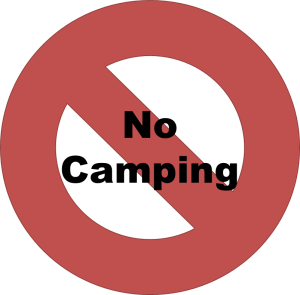 I was talking to a friend the other day about how people believe they are limited in their career choices because of money. We both know many people in well-paid professions who aren’t happy with their jobs. They work exhausting hours or feel like their skills are being wasted, or they can’t stand their work environment. The options they consider include finding a similar job elsewhere or toughing it out and hoping things improve.
I was talking to a friend the other day about how people believe they are limited in their career choices because of money. We both know many people in well-paid professions who aren’t happy with their jobs. They work exhausting hours or feel like their skills are being wasted, or they can’t stand their work environment. The options they consider include finding a similar job elsewhere or toughing it out and hoping things improve.
There are more options, of course, but many people eliminate the ones that involve scaling down their lifestyles unless they are forced to. Expensive houses can be sold to live in smaller, more affordable homes. Luxury cars can be traded in for economical models. Resort vacations can be replaced by… camping. I’m laughing as I write this – I’m not much of a camper. But you know what I mean.
The point is, if you hate your job but love your paycheck, is it worth it? There’s no judgment if the answer is yes. It’s great to have money to spend on things that we enjoy and different people have different priorities.
I’m glad I got to experience some incredible vacations in the past, and my biggest expense is still my mortgage. But I spend less and save more in order to have the career that I want. And I wouldn’t trade it for a bigger house or a Mercedes or an annual trip to the Four Seasons Hualalai.

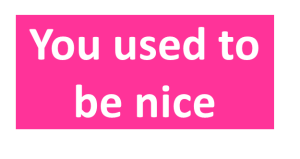

Recent Comments